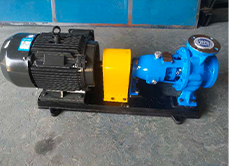Miao
- Afrikaans
- Albanian
- Amharic
- Arabic
- Armenian
- Azerbaijani
- Basque
- Belarusian
- Bengali
- Bosnian
- Bulgarian
- Catalan
- Cebuano
- Corsican
- Croatian
- Czech
- Danish
- Dutch
- English
- Esperanto
- Estonian
- Finnish
- French
- Frisian
- Galician
- Georgian
- German
- Greek
- Gujarati
- Haitian Creole
- hausa
- hawaiian
- Hebrew
- Hindi
- Miao
- Hungarian
- Icelandic
- igbo
- Indonesian
- irish
- Italian
- Japanese
- Javanese
- Kannada
- kazakh
- Khmer
- Rwandese
- Korean
- Kurdish
- Kyrgyz
- Lao
- Latin
- Latvian
- Lithuanian
- Luxembourgish
- Macedonian
- Malgashi
- Malay
- Malayalam
- Maltese
- Maori
- Marathi
- Mongolian
- Myanmar
- Nepali
- Norwegian
- Norwegian
- Occitan
- Pashto
- Persian
- Polish
- Portuguese
- Punjabi
- Romanian
- Russian
- Samoan
- Scottish Gaelic
- Serbian
- Sesotho
- Shona
- Sindhi
- Sinhala
- Slovak
- Slovenian
- Somali
- Spanish
- Sundanese
- Swahili
- Swedish
- Tagalog
- Tajik
- Tamil
- Tatar
- Telugu
- Thai
- Turkish
- Turkmen
- Ukrainian
- Urdu
- Uighur
- Uzbek
- Vietnamese
- Welsh
- Bantu
- Yiddish
- Yoruba
- Zulu
Telephone: +86 13120555503
Email: frank@cypump.com
Oct . 06, 2024 07:26 Back to list
pipeline pump
The Importance of Pipeline Pumps in Modern Infrastructure
Pipeline pumps are crucial components of modern infrastructure, playing a vital role in the transportation of liquids and gases across vast distances. From water supply systems to oil and gas industries, these pumps ensure that essential fluids are moved efficiently and reliably. Understanding the functionality and significance of pipeline pumps can help us appreciate their role in our daily lives.
At its core, a pipeline pump is a mechanical device designed to move fluids through pipelines. These pumps come in various configurations, such as centrifugal pumps, positive displacement pumps, and submersible pumps, each tailored for specific applications. The choice of pump type depends on factors like the nature of the fluid being pumped, the required flow rate, and the pressure conditions in the pipeline system.
One of the most common uses of pipeline pumps is in the water supply sector. Municipal water systems rely on these pumps to deliver clean water to homes, schools, and businesses. In addition to ensuring access to potable water, pipeline pumps also play a critical role in wastewater management. They transport wastewater from homes to treatment plants, where it can be processed and returned to the environment safely.
In the oil and gas industry, pipeline pumps are indispensable
. They facilitate the movement of crude oil, natural gas, and refined products through extensive pipeline networks. Given the hazardous nature of these materials, the design and operation of pipeline pumps must prioritize safety and efficiency. Advanced monitoring systems and automated controls are often integrated into these pumping systems to ensure optimal performance and to detect any potential leaks or failures.pipeline pump

The importance of pipeline pumps extends beyond utility services; they are integral to many industrial processes. Chemical manufacturing, food processing, and pharmaceuticals all rely on precise fluid handling to ensure quality and efficiency. In these sectors, pipeline pumps help regulate the flow of raw materials and finished products, contributing to streamlined operations and reduced waste.
As urbanization and population growth continue to escalate, the demand for efficient and reliable pipeline pumps is likely to increase. Aging infrastructure in many regions presents challenges that necessitate the upgrading or replacement of old pumping systems. Investing in modern pipeline pumps that utilize cutting-edge technology can enhance the efficiency of fluid transport systems, reduce maintenance costs, and minimize environmental impact.
Sustainability is another critical consideration for pipeline pumps. The world is increasingly focused on reducing carbon footprints, and energy-efficient pump designs are at the forefront of this movement. By adopting pumps that require less energy to operate, industries can significantly decrease their greenhouse gas emissions while maintaining operational efficiency.
Furthermore, advanced technologies such as smart sensors and real-time monitoring systems allow for predictive maintenance, reducing downtime and extending the lifespan of pipeline pumps. These innovations contribute to better resource management and environmental stewardship.
In conclusion, pipeline pumps are essential to the functioning of modern society. Their applications are vast, spanning across water supply, wastewater management, oil and gas transportation, and numerous industrial processes. As we strive for a more sustainable future, the evolution of pipeline pump technology will undoubtedly play a pivotal role in enhancing efficiency and reducing environmental impact. By recognizing the importance of these systems, we can better appreciate the complex network that supports our daily lives and promotes a sustainable approach to resource management.
-
ISG Series Vertical Pipeline Pump - Chi Yuan Pumps Co., LTD.|High Efficiency, Energy Saving, Low Noise
NewsJul.30,2025
-
ISG Series Vertical Pipeline Pump- Chi Yuan Pumps|High Efficiency&Low Noise
NewsJul.30,2025
-
ISG Series Vertical Pipeline Pump-Chi Yuan Pumps Co., LTD.|High Efficiency&Energy Conservation
NewsJul.30,2025
-
ISG Series Vertical Pipeline Pump - Chi Yuan Pumps Co., LTD.|Advanced Hydraulic Design&Energy-Efficient Solutions
NewsJul.30,2025
-
ISG Series Vertical Pipeline Pump - Chi Yuan Pumps Co., LTD.
NewsJul.30,2025
-
ISG Series Vertical Pipeline Pump - Chi Yuan Pumps Co., LTD.|energy-efficient fluid handling&industrial durability
NewsJul.30,2025










